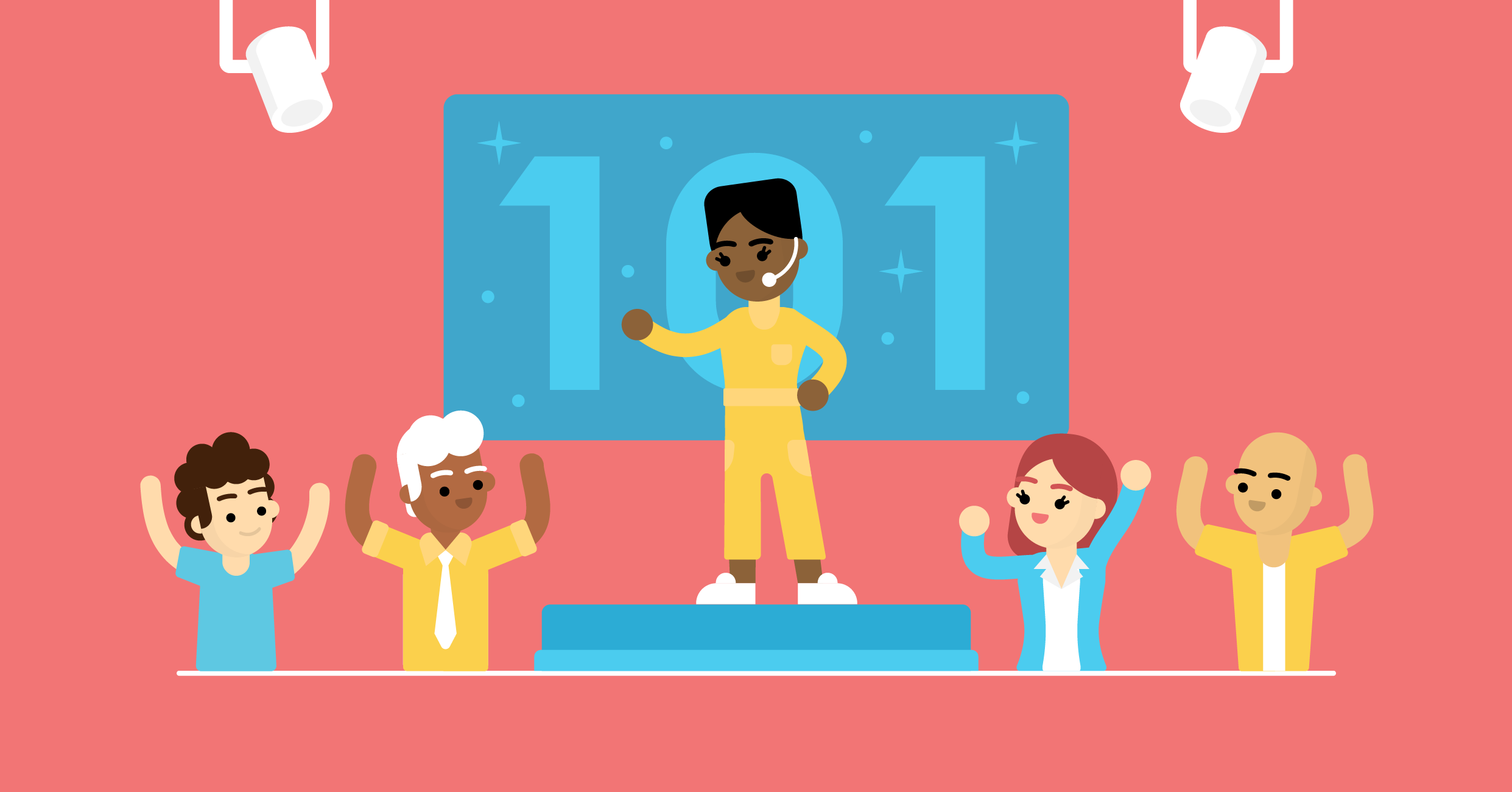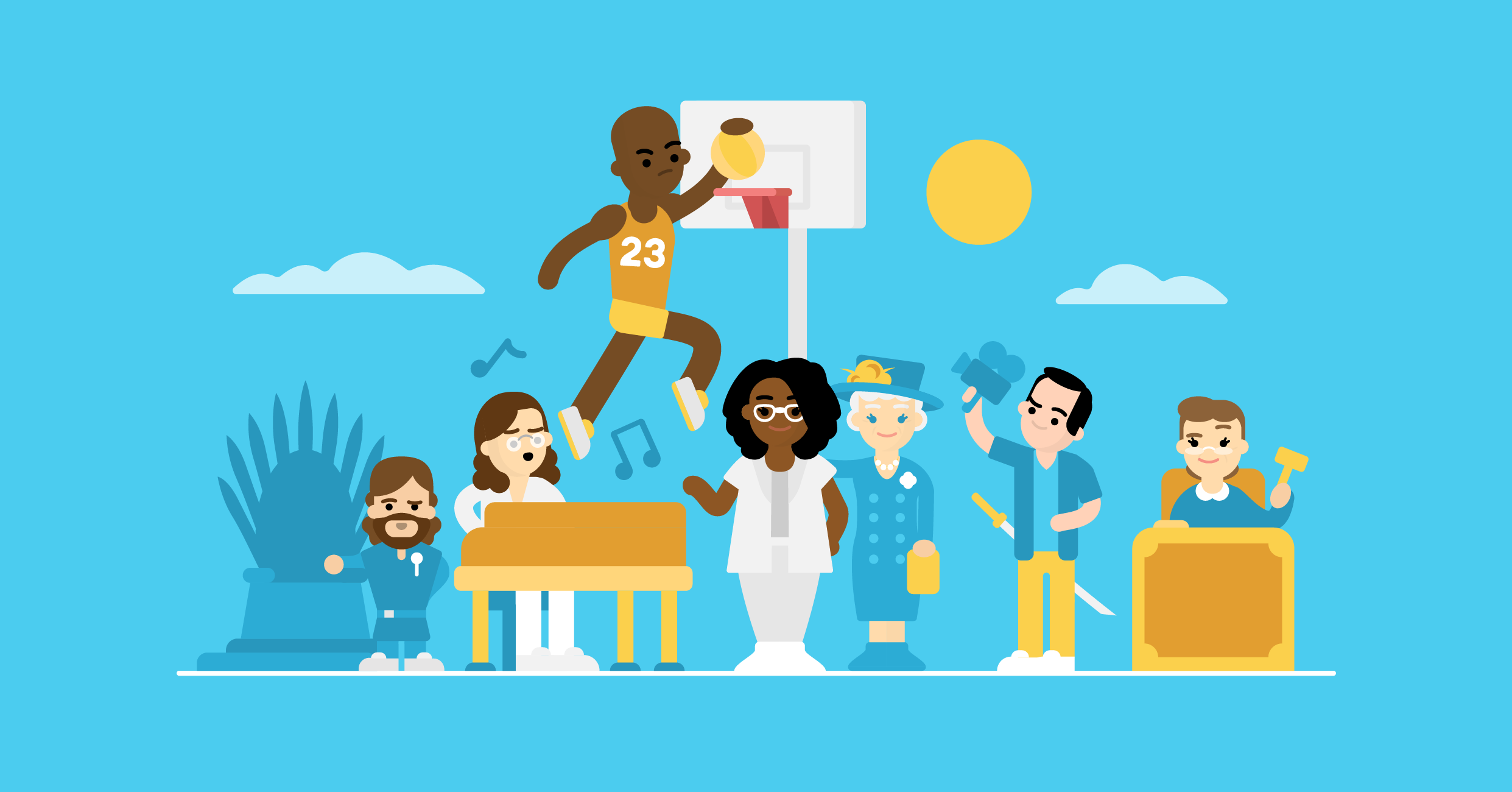
You could say “What are your career goals?” is the adult version of “What do you want to be when you grow up?”
You probably even had a better idea of what to answer when you were 6.
You should channel that same level of confidence when talking about your career goals to an interviewer.
Easier said than done, right? Especially if you’re uncertain about what your goals are or what they should look like in the first place.
We know that struggle! To help you figure out your career goals (and answer the dreaded interview question), we compiled this guide.
Here’s what we’re going to cover:
- What is a Career Goal and Why is It Important to Have One
- The 4 Most Common Types of Career Goals
- Tips for Answering “What are Your Career Goals” and things to avoid saying
- 3+ Examples of How Your Answer Should and Should Not Look Like
So, let’s get started:
What is a Career Goal
Career goals are targets. Things, positions, situations related to your professional life that you have set your mind on achieving.
They can be short-term, like getting a promotion or certification, or they can be long-term, like running your own successful business or being an executive at your dream company.
No matter what they sound like, they should be this sort of prize that motivates you to get going in your career.
Why Is It Important to Have a Career Goal (And Why Interviewers Care)
Firstly, the job interview aside, you should have a career goal simply because it’s beneficial to you.
Not to impress the interviewer, your relatives, or your future Tinder date, but to improve yourself.
Having a career goal will keep you focused and keep you from getting stuck on a cycle where every day looks the same and you forget what you are working for in the first place.
It gives you something to aim for, steps to follow, progress to make.
Now, back to the interviewer and why they’re asking the question. Your answer lets them know about two things:
- How long do you plan on working for them
- What motivates you to work
All interviewers are curious as to why you want to work for them, and they will ask you straight up about it. However, this question tells them something that the “Why do you want to work for us?” interview question doesn’t.
Your career goal will give them an idea as to what type of employee you will be - long term or short term. Is this position something that you will be staying in for a while, or is this a temporary stop until a better opportunity comes along?
In 2020, hiring and training an employee costs between $4000-$7600. Money that employers have no interest in investing in someone who will be working for them for no longer than two months.
Having a career goal also means you are not applying for a position just because the job ad randomly stumbled in your way and, being unemployed, you’d apply to just about anything so… here you are.
If you have a goal that you want to achieve, it means that this interview was no accident and this job position really aligns with your aspirations. That means you will probably be more dedicated to the job, work harder, and have a great attitude.
An alternative to the career goals question is “Where do you see yourself in 5 years?”. In both cases, interviewers are trying to get to the same point: your future.

4 Most Common Career Goals
Apart from the two main types - long term and short term - career goals can also be sorted into categories depending on their focus.
The 4 most common ones being:
Goals focused on professional advancement
These goals are all about improving your work performance and being more efficient; getting better and faster at what you do and climbing higher up the ladder because of it.
Short-term example: A sales agent increasing their monthly sales by x%
Long-term example: Make a senior partner at a top law firm.
Goals focused on leadership advancement
When it comes to leadership, there’s a lot of room for career advancement. These goals are all about improving your management skills and aiming for positions with more responsibilities.
Short-term example: Working my way up to the position of a manager at this restaurant.
Long-term example: Working as an executive at X company.
Goals focused on educational advancement
Whether you just graduated or you’re a full-on professional, there’s always more to learn. These goals are about keeping you up to date with the new developments in your field or just learning something new and different.
Short-term example: Learning a new programming language.
Long-term example: Finish medical school, complete a surgery residency program, and successfully earn a state license to practice medicine in no more than 11 years.
Goals focused on personal development
These goals put emphasis on self-improvement and skills like networking or teamwork. Achieving them has a positive impact on your professional life, but they also show that you are more than just work work work.
Short-term example: Becoming more proactive within your company.
Long-term example: Improving your networking skills.
How to Answer - “What Are Your Career Goals?”
There really is no formula for getting this question right. There are, however, some tips we can give you to make sure your answer hits all the right spots.
Be relevant to the company.
Let’s say one of your goals at the moment is to get a certification from an online course in fictional writing. That’s an amazing goal, but if you are applying for a position as a sales manager, this certification is not going to help you a lot at the interview.
So what this means is, your answer to this interview question should be related to the position/company you’re applying for.
Correct Example
- My goal has always been to be a Certified Public Accountant. In one year I will have finally fulfilled the education and experience requirements to enter the Uniform CPA Exam, which I’m very determined on passing.
Incorrect Example
- I’m only an amateur photographer, but my goal is to have my own exposition one day. Whenever I’m outside of work I try to dedicate myself to it as much time as possible so I can expand my portfolio. I think it’s cool for an accountant to be engaged in something else like photography, right?
Start with short-term goals and then move to long-term ones.
Short-term goals usually tend to be steps in the way of the bigger long-term goal. They’re also more specific and clear.
When giving your answer, you can start talking about these goals, and then roll into the long-term ones. Your answer will sound much more logical and your plans well thought out.
Correct Example:
- I’m aiming to discover some new talented authors in the upcoming years. Delivering a bestselling book would help me establish my name as an editor in the publishing industry and help me gradually build a strong clientele of writers.
Incorrect Example:
- My goal is to be the editor of some major writers. I can see myself delivering a bestselling series like Harry Potter in a few years.
Back your goals with an action plan
Laying out a list of goals doesn’t make for a very convincing answer. Instead, focus on one or two main goals and briefly explain how you plan on achieving them or how they will benefit your career in the long-term. This shows that you have thought these goals through and are clear about what you want in the future.
For example, if your short-term goal is to learn a new programming language, explain how you will achieve that (certification or auto-didactic learning) and how that improves your work performance (does it allow you to work on more projects? Does the company you work for benefit from that?).
Elaborating on that last sentence: Focus on the employer.
Yes, they’re asking about your career goals, but at the end of the day, they care about their company’s best interest more. (No shocker here.) So, when talking about your goals make sure to express how achieving them will also be beneficial to your potential employer. Convince them it’ll be a win-win situation.
Correct Example:
- I’m trying to find the appropriate time this year to enroll in a course for learning SAP FICO. It would help me as a financial analyst deliver more accurate reports, as well as help the company plan and monitor costs better.
Incorrect Example:
- I’m aiming to improve the quality of my reports and analyses. I need to do some more research on how exactly I can do that, but for now, that’s my goal.
Preparation and Practice.
No matter how much you feel you have your future plans figured out, it’s still important to prepare for this question in advance. Think about some short-term and long-term goals, and take the time to practice your answer.
3+ Sample Answers to “What Are Your Career Goals”
If all that talk had you confused, here are 3 examples of answers that illustrate how to turn theory into practice.
Student/Intern Example
“Well, I’ll be graduating next year and I would love to start working in the marketing department of a company like yours right away. Apart from expanding my knowledge and experience in marketing, I also hope to improve my communication and public speaking skills. I really want to be a proactive and valuable team member.”
Short-term goal: Work in marketing after graduation.
Long-term goal: Be a proactive and engaged team member.
Action plan: Earn more experience and knowledge in marketing and improve communication and public speaking skills.
Professional Example
“I know that it’s become more and more helpful to know Python in the context of finance, so I plan on learning it this year. It will come in handy when solving portfolio optimization problems. As far as long-term goals, I would like to become a part-time professor at Y university. I have given some guest lectures there and really enjoyed it. The flexible hours are also very beneficial as they allow me to keep another job as well.”
Short-term goal and action plan: Learn Python in the finance context.
Long-term goal and action plan: Become a part-time professor at Y university.
Management Example
“At the moment I’m trying to improve my leadership skills so that I’m able to manage larger game design teams. I’ve only had experience as a lead designer so far, but I hope after a few years and some more experience I’ll be able to fully manage an entire project.”
Short-term goal: Manage larger game design teams. Long-term goal: Become project manager.
Action plan: Improve leadership skills and gain more experience as game design lead.
💡
Quick Tip
If you’re looking for sample answers to similar tricky interview questions, check out these 35+ Common Interview Questions and Answers.
4 Common Mistakes to Avoid When Answering “What Are Your Career Goals”
After covering the to-dos, let’s get to the NOT to-dos.
Here are 4 of the most common mistakes people make when answering “what are your career goals?”
Answer with “I have no goals”
There isn’t much to elaborate on this one, just.... don’t.
Talk about salary
It’s okay for money to be your motivator. Hell, it’s the motivator for most people. You know that, we know that, the interviewer knows that, BUT that’s not what they want to hear and that’s not what you should say.
For example, if you’re in the marketing industry and you want to get to a point where you have an annual salary of $70,000. You should look into what positions in your industry make that kind of earning and set them as your goal instead.
So, at the interview, instead of saying “My goal is to make $70,000 in salary by the time I’m 30”, go with “My goal is to be a content marketing director by the time I’m 30.”
Set unrealistic goals
This doesn’t mean you shouldn’t dream big. We fully support that reach-for-the-stars mindset.
However, insisting that in 5 years you’ll be CEO of the company where you’re applying, when you just graduated a month ago… that doesn’t sit that well, especially with the interviewer. You will come off as arrogant and that definitely won’t get you through the door.
Get into too many specifics
Meaning, if your goal is being head of marketing for your dream company and that’s not the position or company you’re applying for, it would be best to not mention that.
Doing so would let the interviewer know that your eyes are on another company and this position is temporary to you. Instead, you can just say that your goal is being head of a marketing department. No more details on who, where, what.
There are a lot of other danger zones during interviews, so if you want to find out about them, here’s a guide on 26+ Biggest Interview Mistakes.
Key Takeaways
Whew, that was a lot to take in, right?
When answering the “what are your career goals” interview question, here’s what you need to remember:
- Be relevant to the company. If your goals align with the needs of the company, or even better, the company benefits from them, you’ll have an advantage as a candidate.
- Explain how. Give some steps that you plan to follow to reach your goals. That will show that they are well thought and planned.
- Avoid the money talk. Instead of talking $ bills translate salary into an actual position. That sits better with the interviewer.
When it comes down to it, all the lists and tips don’t mean much if you don’t take time to properly prepare and practice, so don’t skip that part.
And if you want to practice more interview questions, we've prepared examples answers for you:
- Tell Me About Yourself
- Why Do You Want to Work Here?
- Why Should We Hire You?
- What Are Your Strengths and Weaknesses?
- What Is Your Greatest Strength?
- What Is Your Greatest Accomplishment?
Wait, that's not all! We've even got guides with tips on how to ace your next interview:
- Video Interview - Tips on How to Ace It
- Phone Interview Questions & Tips - How to Ace It
- How to Ace Interviews with the STAR Method [9+ Examples]
- Thank You Email After Interview
Good luck!
Suggested Readings:



